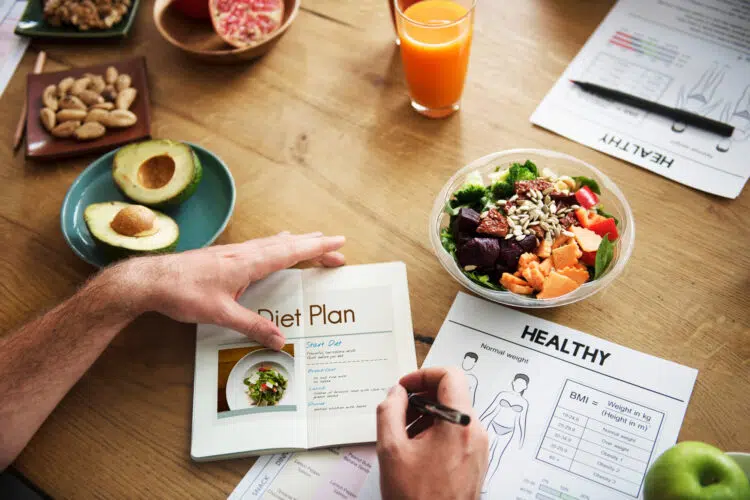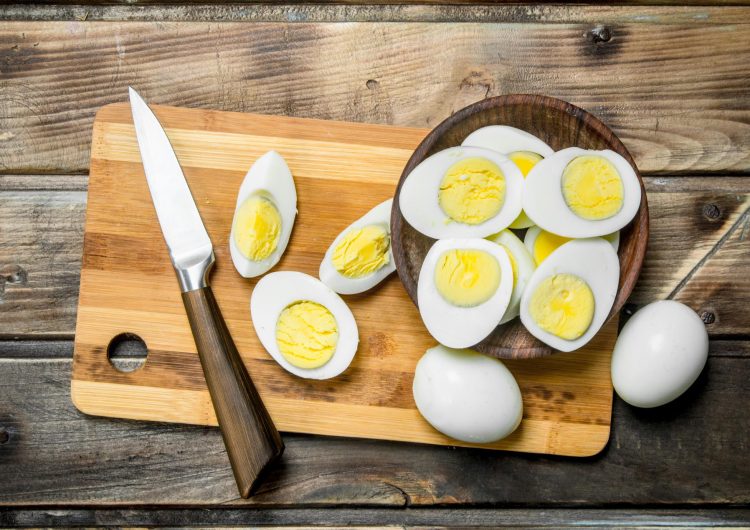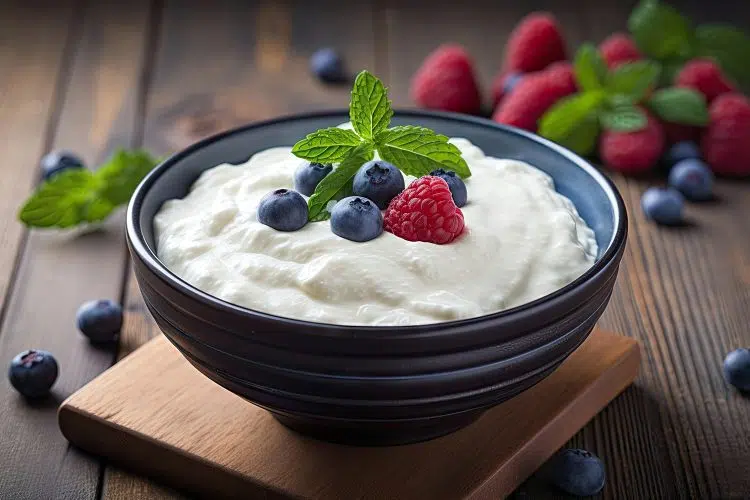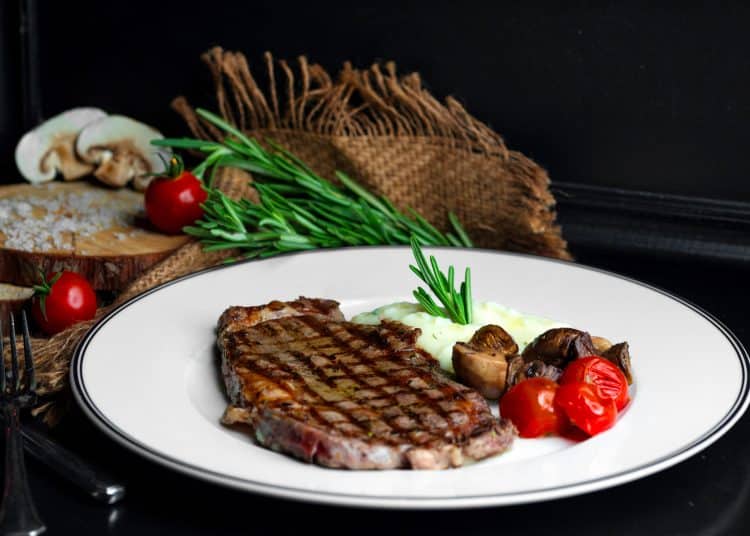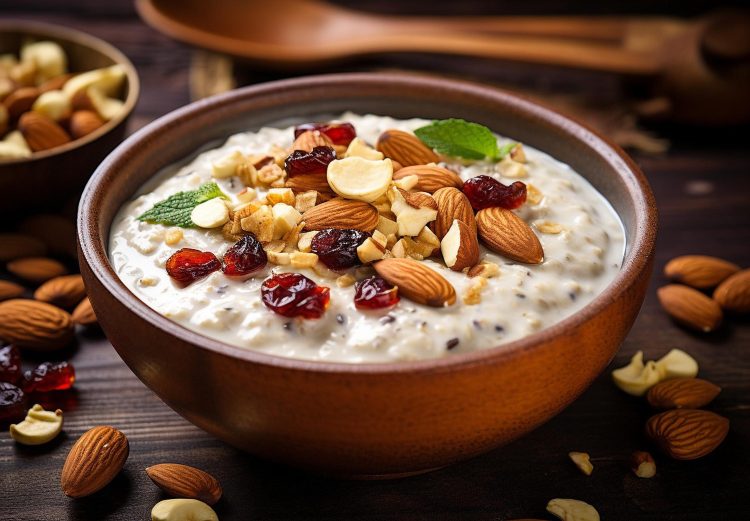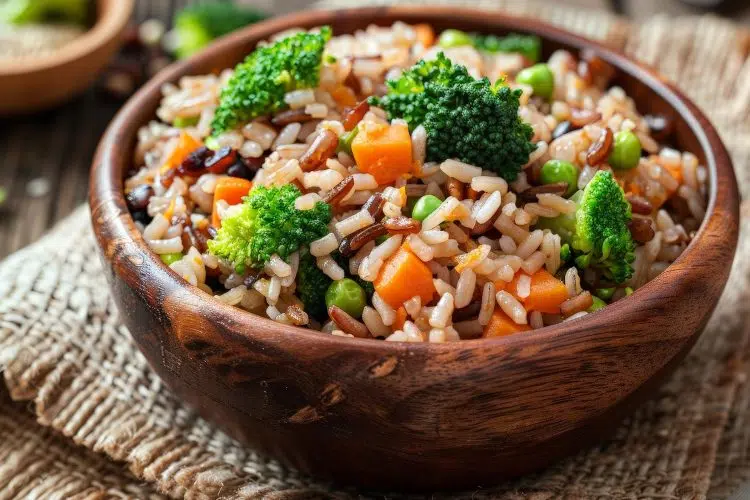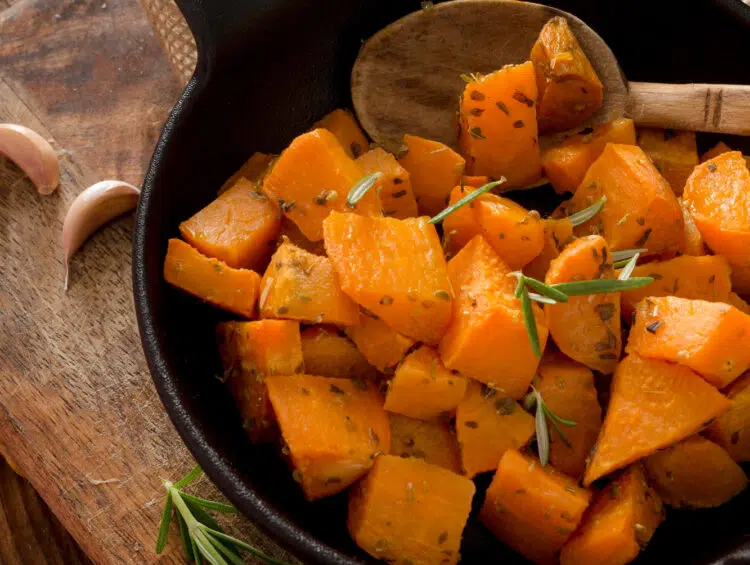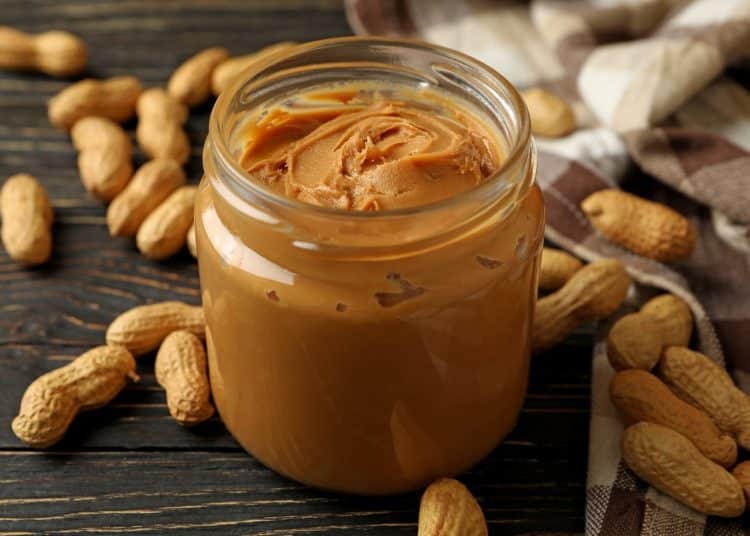Depending on your current fitness levels, you might have to gain weight to build muscle and strength. Gaining weight often requires a calorie surplus, meaning you must consume more calories in a day than you expend.
No two food sources are created equal. You must eat the right types of foods to ensure ample nutrient supply to build lean muscle tissue while avoiding excess body fat gain.
As a personal trainer who has helped hundreds of people transform their physiques, I’ve seen firsthand the power of combining personalized training programs with eating the right types of foods.
Eating nutrient-dense, calorie-rich, whole foods is crucial for fueling your high-volume workouts, boosting your recovery, and achieving your fitness goals. In this article, I reveal the 10 foods that should be a staple in your diet if you aim to lose fat and build muscle.
The Science Behind Gaining Weight and Muscle & How To Choose The Right Foods For Your Goals
Before we get into the foods you should add to your diet to gain muscle and weight quickly, let’s understand what makes these foods tick in the first place. Knowing what separates these foods from the others can help you make better food choices even when you don’t have access to the 10 foods listed below.
The Role of Macronutrients
Folks trying to transform their physiques must understand the role of the three macronutrients — proteins, carbs, and fats — and their effects on the body.
Protein
Protein is the building block of muscle. Your body metabolizes protein into amino acids, which are crucial for repairing and building muscle tissue. Your ideal daily protein intake will vary depending on your current fitness level and training objectives.
Dr. Layne Norton, Ph.D. in Nutritional Sciences, recommends consuming one gram of protein per pound of body weight to build muscle.
Lean meats, poultry, fish, eggs, dairy, and plant-based options like beans and lentils are some of the most popular sources of protein for bodybuilders and other athletes.
Use this convenient macronutrient calculator to determine the exact amount of carbs, fats, and protein you should be eating in a day to quickly gain weight and muscle.
Carbs
Carbohydrates are the body’s primary sources of energy. They also help fuel your intense workouts and ensure you have enough energy throughout the day. Cutting out carbs too quickly from your diet can result in energy crashes, which can hamper your physical and mental performance.
Most nutrition experts recommend choosing complex carbs like whole grains, fruits, and vegetables over simple carbs like sugary drinks and processed foods to ensure a steady supply of energy.
Fats
Contrary to what most have come to belive, dietary fats are not your enemy. In fact, they are vital for many essential body functions, such as hormone production, nutrient absorption, and brain health.
But remember, fats are the most calorie-dense macronutrient. While each gram of carbs and protein contains four calories, a gram of fat has nine calories. You must keep this in mind while designing your diet.
Incorporate healthy fats from sources like avocados, nuts, seeds, and olive oil into your diet.
Don’t Forget About the Micronutrients
Micronutrients are the unsung heroes in each diet. Vitamins and minerals play a crucial role in various bodily functions, including energy production, protein synthesis, and recovery.
Humans need about 30 different types of micronutrients. Being unaware of these vitamins and minerals can lead to deficiencies, which can hamper your overall health and well-being. You must include a variety of foods in your diet to ensure you’re getting a wide range of micronutrients.
Top 10 Foods for Gaining Weight and Muscle
If you were to put a gun to my head and ask me which were the 10 most essential foods in my diet, this is what I would have told you:
1. Egg
Eggs are a staple in my breakfast routine. I cannot think of breakfast and not think about eggs. They are packed with high-quality protein, healthy fats, and essential vitamins and minerals.
Also, they are a quick-digesting form of protein, making them an excellent choice for your post-workout meal when your body soaks up nutrients like a sponge. Eggs are a complete source of protein and have all the nine essential amino acids your body needs to repair and rebuild muscles.
Folks on a lean bulk should avoid egg yolks as they contain a heavy dose of fats. Also, you could have a hard-boiled egg as a convenient snack when you are starving and don’t have access or time to cook healthy meals.
One large egg contains six grams of protein and five grams of fat. Try our Egg Protein Calculator to track your nutritional intake!
2. Salmon
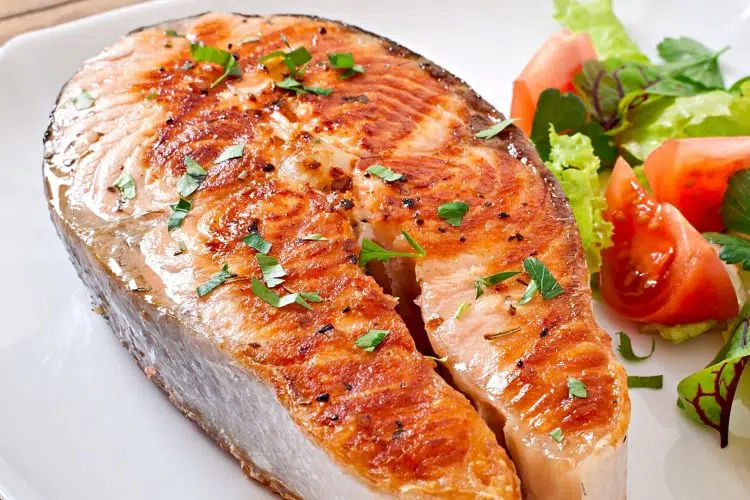
Salmon should be a staple in your diet if you’re aiming to build lean muscle and gain weight. It is a healthy source of protein and fats, like omega-3 fatty acids. These have numerous benefits for muscle growth and recovery, as they reduce inflammation, improve insulin sensitivity, and boost muscle protein synthesis.
I alternate between grilling, baking, and pan-searing salmon and usually eat it at lunch or dinner. You could also have it as a snack by adding it to a salad.
A three-ounce salmon serving delivers 22 grams of protein. Try our Fish Protein Calculator to track your nutritional intake!
3. Chicken Breast
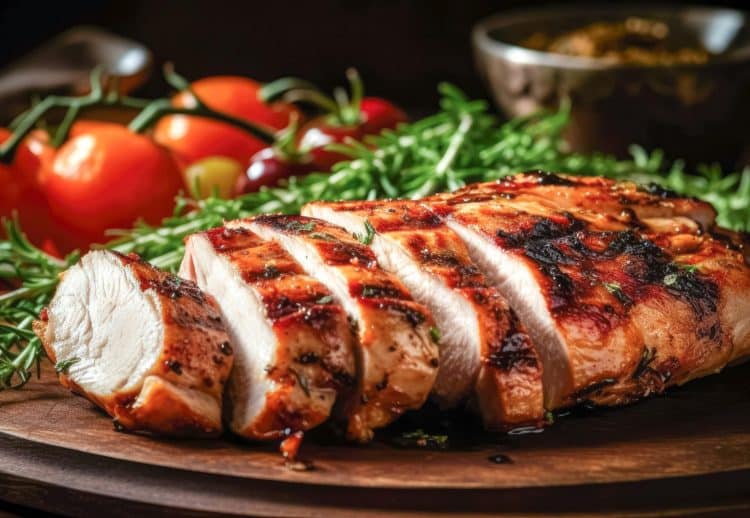
The good ol’ chicken breast is a staple in most bodybuilding diet plans. It is versatile and can be used in a variety of recipes. This lean protein source is ideal for folks watching their weight but still want to build muscle mass.
The best thing about high-protein foods is that they are incredibly satiating. Have a decent serving of protein-rich foods in each meal, and you won’t have to deal with cravings. I also add chicken breast to my salads to ensure I meet my daily protein intake objectives.
A three-ounce serving of chicken breast contains 26 grams of protein. Try our Chicken Protein Calculator to track your nutritional intake!
4. Greek Yogurt
I like to think of Greek yogurt as my cheat meal and add a generous serving of nuts, fruits, and granola to the yogurt for added crunch and satisfaction. That aside, Greek yogurt is packed with all sorts of nutrients that can help you achieve your muscle and weight gain goals.
It has protein for muscle growth, calcium for bone health and protein absorption, and probiotics to ensure optimal gut health.
You could have Greek yogurt for breakfast, eat it as a snack, or add it to your smoothies. You are only limited by your own imagination.
A six-ounce serving of Greek yogurt delivers 17 grams of protein.
5. Lean Beef
Always prefer lean beef, especially when trying to gain lean muscle mass. Besides protein, beef contains several micronutrients that are vital for muscle growth and repair. Iron transports oxygen to muscles, which can boost energy production and performance. Zinc, on the other hand, promotes protein synthesis and immune function.
Most lifters typically eat lean beef for lunch or dinner. Ground beef is an excellent option if you want to use it in snacks like tacos.
Nonetheless, most nutrition experts advise limiting your red meat intake to one meal a day as it has been shown to increase the risk of colorectal cancer. (1)
A three-ounce serving of lean beef delivers around 25 grams of protein.
6. Oats
Oats are one of my go-to complex carb sources. Unlike simple carbs, they ensure a constant supply of energy and are rich in dietary fats, which promote gut health and keep you feeling full for longer.
I usually eat a serving of complex carbs two to three hours before my workout to ensure I have enough gas in the tank to last through the workout without experiencing a dip in my performance.
You could add fruits, nuts, and seeds to the oatmeal for extra nutrients and flavor. Adding oats to smoothies can also thicken their texture without throwing off their nutrient profile.
One cup of oats has around 54 grams of carbohydrates and 10 grams of protein.
7. Brown Rice
Although the white versus brown rice debate is much contested in the fitness space, I try to steer clear of it. I have tried both types of rice, and my body processes brown rice better, so I stick to it.
Brown rice and chicken breast are a match made in heaven. The protein from the chicken promotes recovery, while rice delivers constant energy to maximize training output.
Brown rice is also rich in fiber and micronutrients. It promotes gut health, regulates blood sugar levels, and keeps you feeling full for longer.
A cup of cooked brown rice contains 52 grams of carbs and 5.5 grams of protein.
8. Sweet Potatoes
Most fitness enthusiasts would agree that ‘clean’ diets are usually bland and boring. Sweet potatoes are among a few delicious food sources that you can add to your diet for sustained energy and essential nutrients.
They are also rich in vitamins A, C, and potassium, all of which support muscle function and can boost overall health. Sweet potatoes are packed with antioxidants, which help flush metabolites from your muscle tissues, promoting recovery.
One long (five-inch) sweet potato contains 26 grams of carbs and two grams of protein.
9. Peanut Butter
Peanut butter is an excellent source of healthy fats, protein, and fiber. They are my snack of choice. Whenever I’m hungry, I eat a spoonful (or two) of peanut butter, which almost always satisfies my cravings.
The healthy fats in peanut butter support hormone production and overall health. You could also add peanut butter to your smoothies or oatmeal or sprinkle it over your salads or yogurt.
Although I’m just talking about peanut butter here, you could pick a nut butter of your liking. However, ensure it doesn’t have any added sugars.
A two-tablespoon serving of peanut butter contains eight grams of protein, six grams of carbs, and 16 grams of fats.
10. Avocados
Avocados contain a healthy dose of fats, fiber, and essential nutrients.
They are the most unassuming foods, in my opinion. They are expensive and taste bland, which is why most people avoid adding them to their grocery cart. However, it doesn’t have to be that way.
Avocado sandwiches with poached eggs, cheese, chili flakes, and oregano taste delicious and are a breakfast favorite of many athletes.
A seven-ounce serving of avocado contains 30 grams of fat, 17 grams of carbs, and four grams of protein.
P.S.: You didn’t have to put a gun to my head for this. I would have told you if you asked nicely.
Sample Meal Plan for Lean Muscle and Weight Gain
Now that you know the 10 foods you should be adding to your diet, here is a sample diet plan to get the ball rolling:
Breakfast (7:00 AM):
- Oatmeal with Greek yogurt, berries, and a handful of nuts.
- 3 whole eggs, scrambled or omelet style.
Mid-Morning Snack (10:00 AM):
- Handful of almonds or a protein shake with a banana.
Lunch (1:00 PM):
- Grilled chicken breast salad with mixed greens, avocado, and a light vinaigrette.
- Brown rice or sweet potato on the side.
Afternoon Snack (4:00 PM):
- Rice cakes with nut butter or Greek yogurt with fruit.
Dinner (7:00 PM):
- Baked salmon or lean beef with roasted vegetables.
- Quinoa or brown rice.
Before Bed Snack (9:00 PM):
- Casein protein shake or cottage cheese with fruit.
Feel free to make adjustments to this diet depending on your personal preferences and macronutrient goals.
Tips To Maximize Your Results
Employ the following tips to prioritize gaining lean muscle and weight:
- Meal Frequency: Folks trying to gain weight should eat a meal every two to three hours to rev up their metabolism.
- Protein With Every Meal: Include a high-protein food in each meal to ensure your muscles have ample building material throughout the day.
- Carbs For Energy: Eat a high-quality complex carb source before your training session for optimal performance.
- Healthy Fats: Incorporate avocados, nuts, and fatty fish in your diet to support hormone function and overall health.
- Hydration: Drink at least a gallon of water daily to prevent dehydration and support muscle function.
Also Check Out: Our List Of 40 Great Protein-Packed Foods
Conclusion
Building muscle and weight without gaining excess body fat is a balancing act. You must understand how each macronutrient works and constantly monitor your progress to ensure you’re moving in the right direction.
Adding the 10 foods listed in this article will streamline your diet and put you on a fast track to maximizing your gains. Introduce these foods gradually into your diet and switch between them daily to keep things fresh and exciting.
Like with everything else in the fitness space, consistency and discipline are key to achieving your physique goals. So, put your head down and get to work, and you’ll be rewarded the results in due time.
If you have any questions about these 10 foods, post them in the comments below, and I’ll be happy to help!
References:
- Farvid, M. S., Sidahmed, E., Spence, N. D., Mante Angua, K., Rosner, B. A., & Barnett, J. B. (2021). Consumption of red meat and processed meat and cancer incidence: a systematic review and meta-analysis of prospective studies. European journal of epidemiology, 36(9), 937–951. https://doi.org/10.1007/s10654-021-00741-9
Tip: If you're signed in to Google, tap Follow.



